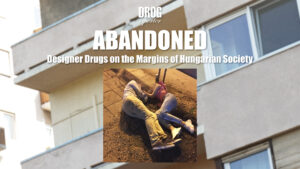Last time, we reported that Portugal is facing a very difficult situation due to the economic and financial crisis. The government claims that austerity measures must be introduced because of the international commitments of the country, and as a consequence, funding for harm reduction services has been cut back significantly. Although funding is still a huge problem (mostly because payments are late and NGOs are forced to close projects), the strong and coordinated advocacy efforts of civil society organizations seem to be bearing fruit.
NGO representatives attended the meetings of the Parliamentary Health Commission and the Working Group on Alcohol and Drug Addiction and they explained their needs to the different parliamentary parties and the Health Secretary of State. At these meetings, the Government side seemed to understand the importance of harm reduction policies and reaffirmed their committment to continue funding. The representative of the ruling party said that the government aims to keep the dialogue going and create a “regular channel of communication” with civil society about drugs and harm reduction policies. The idea is to create a Civil Society Forum on Harm Reduction in Portugal to make the voice of civil society heard. At the meetings of this Forum, drug policies can be debated and discussed.
This advocacy movement led by NGO’s like APDES and also by the National Harm Reduction Network (R3), has drawn up a Memorandum, in which arguments for the maintenance of Harm Reduction Policies are presented to parliamentary representatives. The R3 is encouraging their associated organizations and projects to use this memorandum to lobby municipal assemblies and parties with representation on a local level. Despite these efforts, in the field, the struggle for the survival of harm reduction services goes on and the future is uncertain. In a country which is increasingly pointed out as a pioneer in harm reduction policies, well established intervention projects fear their work may be forced to end in the next months. The uncertainty is only increased by the fact that a reform of drug services nationally is under way, with a restructuring of the National Institute of Drugs and Drug Addiction into a new State Body.
report of APDES






